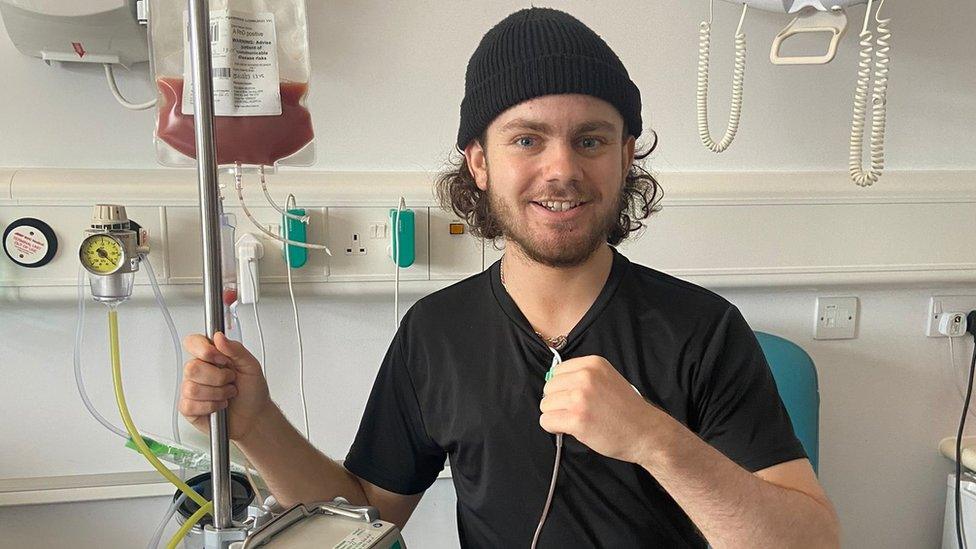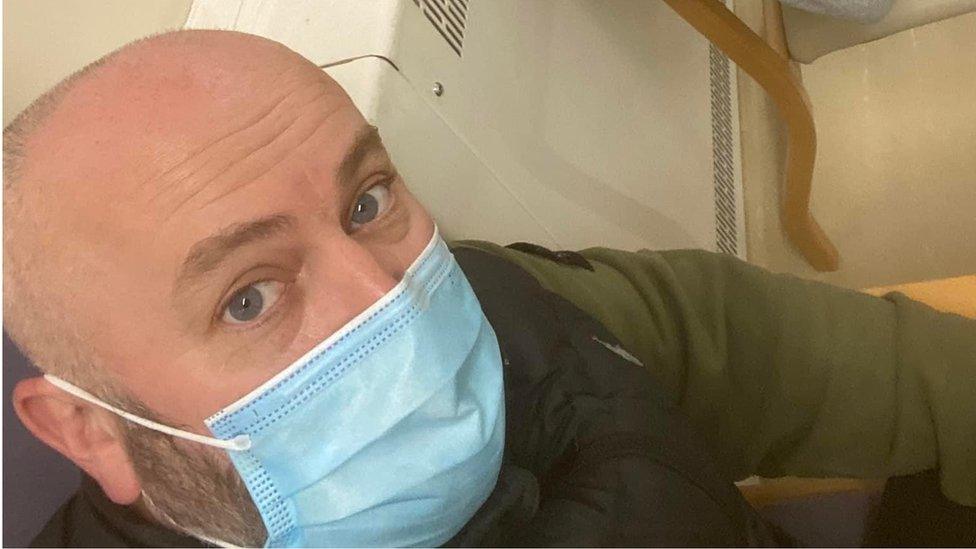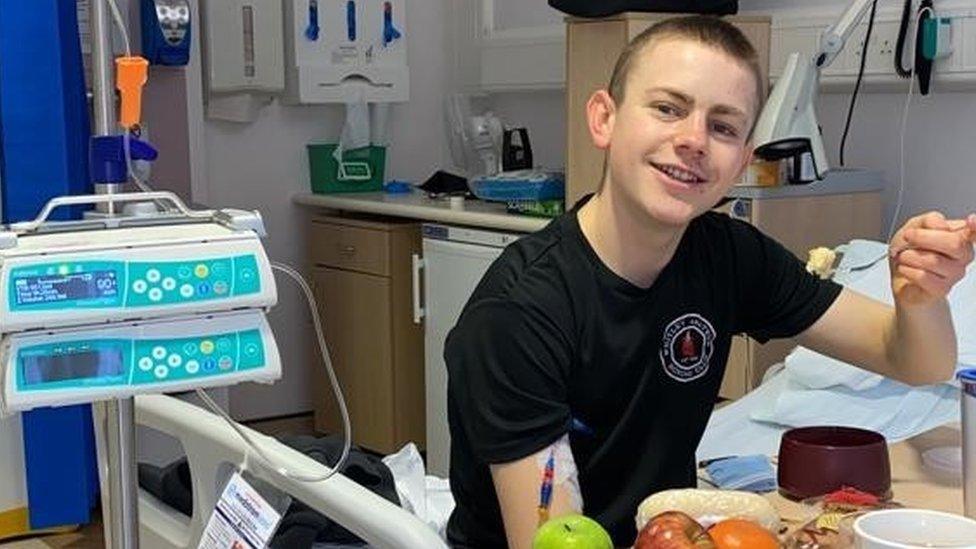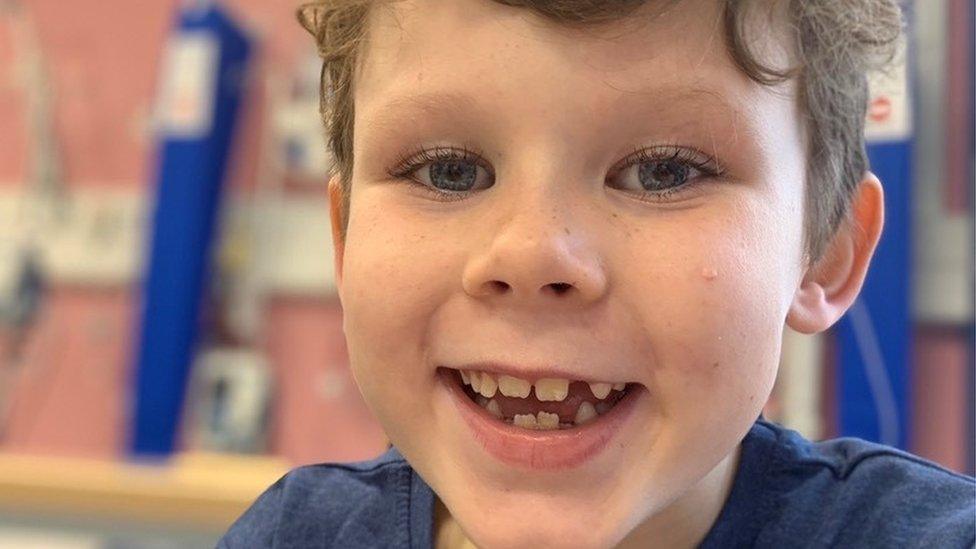Reading father's stem cell transplant hope for boxer son
- Published

Reuben Muston said his latest fight would prove he could overcome all obstacles
A teenage boxer has received a potentially life-saving transplant after an injury in the ring revealed he had a blood disorder.
Reuben Muston, from Reading, Berkshire, suffered a nosebleed that did not stop after boxing in the final of the National Youth Championships last year.
Doctors diagnosed aplastic anaemia, a lack of blood cell production.
The teenager received stem cells donated by his father Danny at a hospital in Oxford on Tuesday.

The teenager suffered a five-day nosebleed following a fight in March 2022
The boxer sustained his injury in the second round of the match last March. His nosebleed lasted for five days.
The 18-year-old was told by doctors a stem cell transplant was the only viable long-term treatment.
His father, who is not a perfect genetic match, was eventually deemed to be a suitable donor.
Danny Muston had stem cells taken from him on Monday that were transferred into his son the following day at Churchill Hospital in Oxford.

Danny Muston donated stem cells for his son on Monday
Speaking before the procedure, Reuben said: "It's like having a new birthday. Second birthday of the year. So I'm excited to get it started and get back to a normal life.
"I'll be able to look back at it as a time where I can prove to myself I can really get through anything. I can fight through the bad, take the good with the ugly and definitely overcome any sort of obstacle."
His father said: "It's tough. You have to try and remain positive. Reuben is a really positive young man... and he can only see himself getting back to boxing."
Dr Andy Peniket, from Churchill Hospital, said Reuben's chances of a cure were "very good".
Aplastic anaemia is a disorder in which the body fails to produce enough blood cells. It can lead to excessive bleeding, leukaemia or heart failure.
Between 100 and 150 people are diagnosed with it in the UK every year.

Follow BBC South on Facebook, external, Twitter, external, or Instagram, external. Send your story ideas to south.newsonline@bbc.co.uk, external.
Related topics
- Published9 March 2023

- Published27 January 2023

- Published2 December 2021
